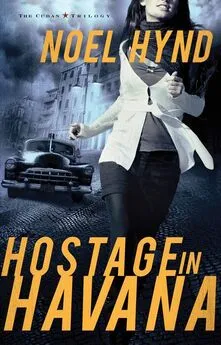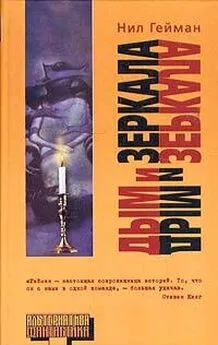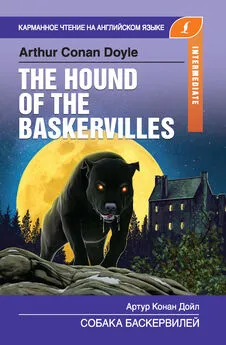Noel Hynd - Hostage in Havana
- Название:Hostage in Havana
- Автор:
- Жанр:
- Издательство:неизвестно
- Год:неизвестен
- ISBN:нет данных
- Рейтинг:
- Избранное:Добавить в избранное
-
Отзывы:
-
Ваша оценка:
Noel Hynd - Hostage in Havana краткое содержание
Hostage in Havana - читать онлайн бесплатно полную версию (весь текст целиком)
Интервал:
Закладка:
She answered several more questions, then glanced around.
“Anything else?” Alex asked. There was nothing.
She flipped her folder closed and managed a smile. She gathered up her papers and put her pen away. De Salvo passed by her as the press conference broke up.
“Excellent work, Alex,” he said. “I’m proud of you.”
TWO
Manuel Perez, freelance contractor, sat in a short-term rented apartment in Bogota, Colombia, shortly past nine on a hot morning in the middle of May. He anticipated the moment that, after weeks of preparation, was almost before him.
He set down the Spanish-language gossip magazine he had been reading as a television droned in the background. Enough of the love life of Paulina Rubio, a Latin singer he adored. Enough of the fabulous Shakira in her magical short skirts and explosive concerts. It was time to go to work.
His hair was gray, long, and shaggy, somewhat like a sixtyish latter-day hippie. Gray stubble crossed his face. By the door of his poorly furnished apartment were the two canes that he used when he went out for groceries or ventured into the public park on the other side of the expressway. He was kind and polite, had a good word for almost everyone, and most people simply addressed him as “Juan.”
Since he spoke with a pronounced Argentine accent, some people referred to him as El Viejo Porteno, “the old man from Buenos Aires.” A rumor had circulated that he had been a political prisoner in Argentina in the 1980s, but he never talked about that himself. He mentioned Juan Peron and Evita a few times, never favorably, but did speak well of Che. Yet with El Viejo Porteno one always knew to leave the past alone.
Perez wore latex gloves on both hands and a digital watch on his right wrist. In his line of work precision was an absolute necessity, a split second was the difference between life and death, much like a professional athlete or a neurosurgeon. That’s how he thought of himself. He was as skilled as any of those people, smarter in most cases, and every bit as deserving of the money people paid him. Nanoseconds separated success from failure, as did millimeters. As for the latex, fingerprints were a bad idea.
It was not a coincidence that he had been educated in his craft in America two decades earlier. He liked Americans, most of them, the people, their lifestyle, their cities, their music. Yet he was wary of them as well. Part of his survival depended on knowing which ones to coddle and which ones to steer clear of.
Well, no matter. He turned off the television. It had been tuned at low volume to one of those goofy Mexican telenovelas that all the women drooled over. An old set of rabbit ears flopped to one side.
He needed quiet now and concentration to focus on his assignment.
Perez used the arm of the sofa to brace himself as he hoisted himself to his feet. His first step had a small wobble to it. On hot days like this, his right knee bothered him. He still suffered from a childhood injury that had plagued him for three decades. In the small town he had grown up in, he had been hit by a car when playing soccer on the streets. Medical intervention was primitive. The bones recovered but never set properly. He recovered from the accident with his right leg a quarter inch shorter than the left.
But that was long ago. This was now. He gained his stride, went to the door that led to the public hallway beyond, and glanced out. No one was there. Nonetheless he used one of his canes since neighbors were used to seeing him chugging along in his unbalanced way.
He limped down the hall to a spot near the emergency stairs. There he ran his fingers over an area in the wall till he found the one cinder block that he had rigged to come loose. He pulled it out. It opened a space between the inside wall of the hallway and the outer surface of the apartment building. There was a gap of about a foot between the two. He slid the block back into place. Only he knew it was loose.
He went back into his apartment and locked the door. Setting his cane aside, he withdrew a heavy steel case from under the sofa in the living room. He unlocked it by combination. Then he opened the case and gazed upon a thing of beauty.
The case contained the parts of a sniper’s rifle, high tech, high caliber, high price tag, and high stakes. He checked for any tears in his latex gloves and found none. Then he removed the parts from the case, laying them side by side on the floor. He assessed the workmanship of the breech, the stock, the laser-telescopic sight, the three tubes that fit together to form the barrel, and, last but not least, the silencer.
He admired the craftsmanship of the interlocking parts. They meshed together as if God had created them. They were that good.
Perez gazed at the pieces for several seconds, in an almost meditative state. Then he assembled his weapon. When he finished, he buffed the rifle with a chamois cloth to remove any fingerprints. Even though he had been careful not to touch the weapon at any time since he had received it, he also knew that the gunsmith in Cali who had crafted it for him could eventually identify him to police or the military. So he buffed it vigorously, even though he had done this twice before.
Then he froze. Outside the door he heard voices. Two men were arguing in loud, inarticulate Spanish. One could never be too careful in his line of work, so he set down the rifle, drew a small Chinese-made handgun from his waist, and went to the door. Peering through the eyehole, he studied the scene before him and slowly relaxed.
He had been in this location for six weeks, waiting. He knew who should be in the building and who shouldn’t. The players in the hall were Suarez, the fat peasant handyman with the cleft palate, and Gomez, his boss, a smelly runt from the Bogota barrio. Well, Perez reasoned quickly, these two nonentities were just that, nonentities. Nothing to be afraid of with these guys.
So Perez returned to his work. He had six bullets in a small box. The custom-made magazine of the weapon was designed to hold only three, two of which would be emergency rounds in case the first shot missed. At the fringe of his consciousness, he heard the two disputants in the hall walk away. Perez loaded the three rounds into the weapon and put the others in his pocket.
The rifle was a fifty-caliber sniping special: the weapon that Soviet snipers had used in Afghanistan and the Americans still used in Iraq. The target that Perez wished to hit moved about Bogota in an armored sedan with extra-thick bulletproof glass and a bombproof chassis. Perez needed a weapon that could propel an explosive bullet far enough with enough accuracy to hit a vehicle at just the right angle and still maintain enough velocity and impact to break the existing rules of armor penetration.
It would first need to smash the destruction-proof glass and then become a small fragmentation grenade upon second and final impact. It was no small challenge. But in his hands, he was sure, he had just such an equation.
Perez laid the weapon on the floor and stepped back. As if by magic, he began to move with an increased dexterity. He went to the window. The building was old, just perfect for his purposes. The old air conditioner churned away. Because of the imperfect fit, Perez had been able to poke a hole into the weather stripping that was supposed to close the gap between the conditioner and the window frame. The hole was just big enough for him to poke the nose of his rifle and the sight through.
He stood at the window and admired the view. Ten floors below, winding through the center of Bogota, a highway ran toward his building, then cut close by on the eastern side. The highway was walled off from the city streets and passed under a bridge two hundred yards in front of him. From his contacts in the government, Perez knew that Ramon Inezia, the chief of the national anti-narcotics squad, would pass this way in the middle of a three-car convoy in about forty minutes. Perez had been waiting for this opportunity for weeks.
He assessed the day. Bright, humid, and hot. Good shooting weather. His bullets would travel two thousand feet per second at a weight of 185 grains. Location, time, distance, temperature, wind direction, mental state of the shooter, everything factored in.
Perez was anxious to take his shot. Maybe even a second shot if time and logistics permitted. He scanned the highway with his binoculars, mentally picturing the short convoy of official cars that he had been tipped off would pass by this afternoon. He unwrapped some baked chicken and tortillas, ate his lunch, and returned to the window.
For several minutes, each of which seemed like an hour, he waited, his pulse quickening. Then, at a few minutes before 10:00 a.m., he saw what he was looking for: traffic giving way to a trio of black Mercedes limousines about a mile away, the front car with a small blue beacon. This was his cue. He knew the distance, 1.2 miles. He had sixty-eight seconds to get ready and hit a target moving at a rate of a hundred feet per second.
He shouldered his weapon and went to one knee. He protruded the long nose of the rifle through the hole in the weather stripping and found his bearings on the expressway. Steadying the rifle on his shoulder and on the window sill, he then locked in the laser sight. He wondered if the cortege had any radar detection. But he reasoned that they moved around the city with a confidence bordering on arrogance. Unless he had been betrayed within a small circle of conspirators, he was fine. No way anyone would suspect that this day was different than any other. And anyway, if they did detect sights on them, they would alter their speed and that would tip him off.
He saw no sign that they were doing that. Thirty seconds passed.
Squinting, Perez fixed his sight on the first car, then moved it to the second. He had a full profile of the speeding car and locked into the sharp downward angle he wanted. Seconds flew off the clock. The trio of cars hit an area a quarter mile away that was crisscrossed by overpasses. He knew the cars would hurtle out from under the final overpass at about seventy miles an hour. He would have less than two seconds to make a final fix with his sight and fire.
The vehicles hit the first overpass and disappeared. On instinct, Perez made a final recalculation, spur of the moment, completely reflexive and intuitive.
He moved his rifle sight into the open area beyond the underpass. He would not track the cars but rather let the motorcade run into his sight lines.
He looked at the laser dot on the highway a hundred fifty meters away and then saw the first car speed through it. He counted off half a second. When the front bumper of the second Benz streaked into his view he pulled the trigger.
He saw the rear window of the Benz explode into shards. And within that same breathless moment, he quickly tracked the nose of his rifle along the mid-section of the car. He cheated a hair toward the rear seat and volleyed a second shot, then brilliantly following with the nose of his rifle, a third.
The vehicle spasmed and swerved in reaction to the explosives that had hit the car and the fragmentation that had detonated within it. Perez thought he saw a nanosecond of reddish mist exploding within the car, which was wonderful. He had been successful! The car erupted in flames. The second bullet, as he had hoped, must have nailed the fuel line. The vehicle fishtailed and spun. It suckered the car behind it into hitting it, then left the asphalt, struck a wall, and went into a violent forward tumble and crashed.
Manuel Perez had no need to admire the rest. He withdrew his weapon and laid it on the floor. He knelt and broke it down. Within ninety seconds he had wrapped the pieces in a towel and was in the hallway. He held the rifle pieces under one arm, the two canes in the other hand. He let his door lock behind him. He had paid his rent two months in advance. No one would come looking for him.
Читать дальшеИнтервал:
Закладка:










